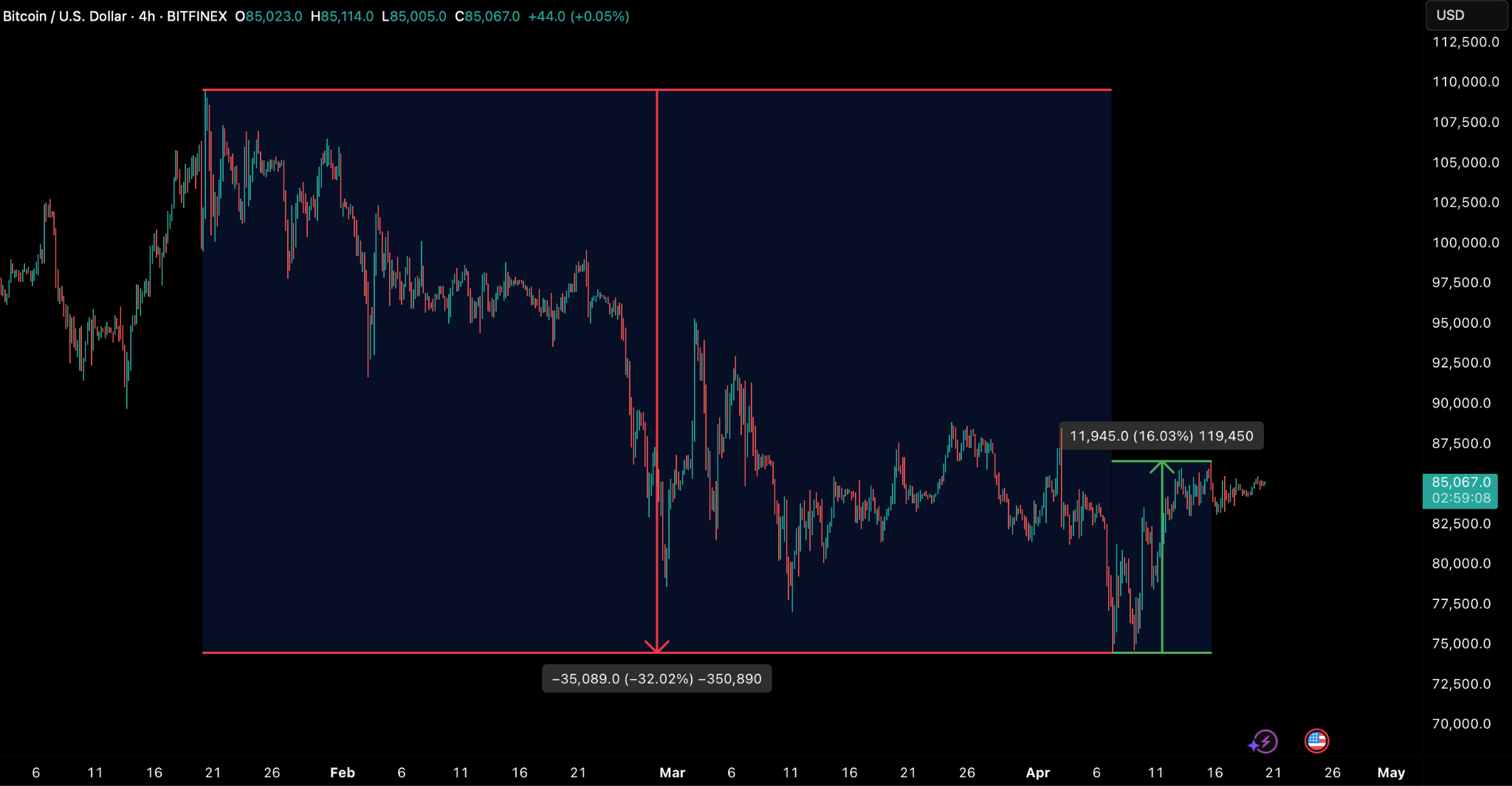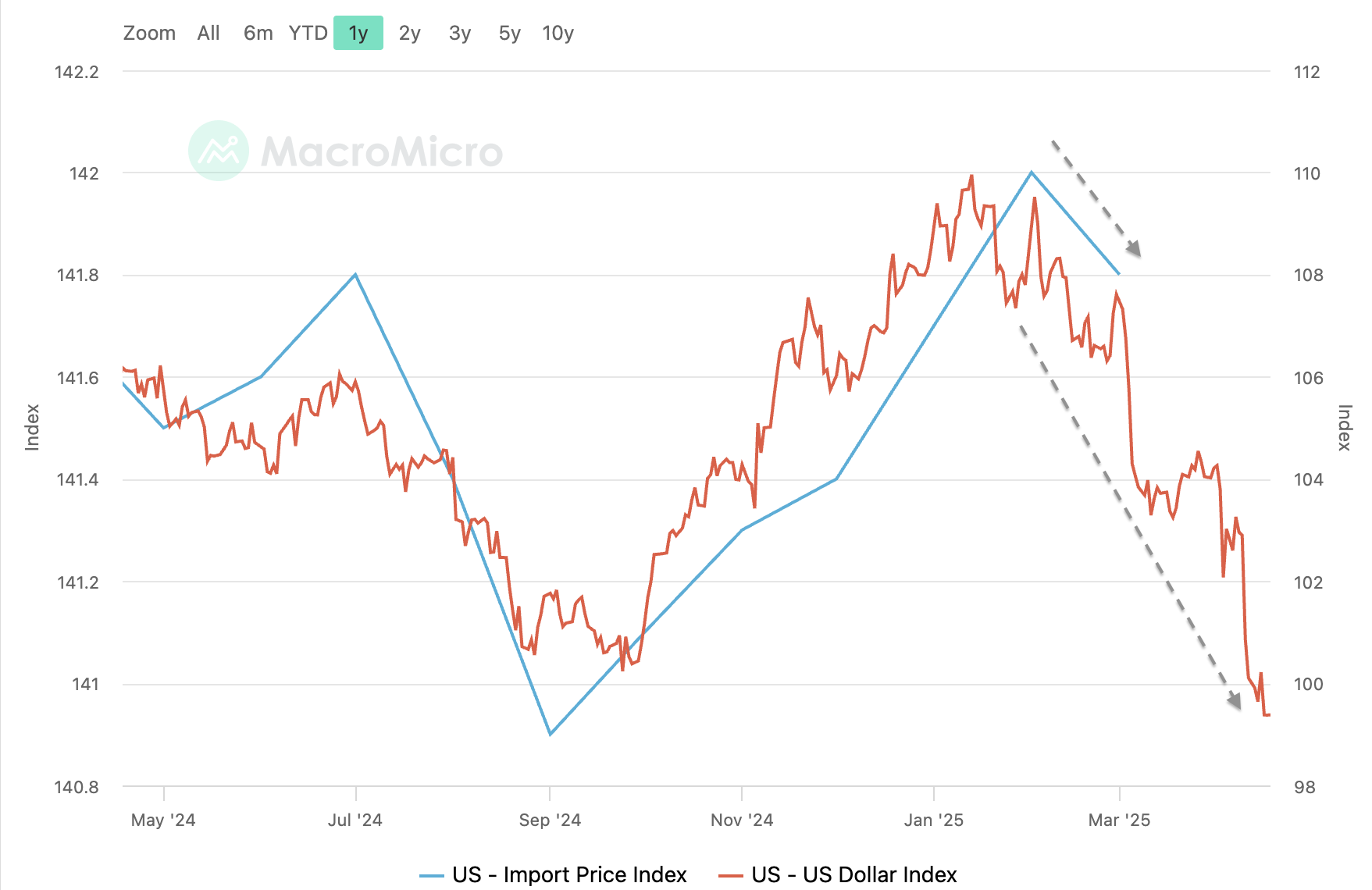This rebound has come alongside gold pushing to new all-time highs above $3,300 per ounce, reinforcing the growing narrative that Bitcoin is evolving into a digital macro hedge. Both assets are increasingly seen as global neutral stores of value amidst de-globalisation, trade conflict, and capital flight from volatile equity markets. Recent price action further supports this thesis: since April 2nd – or Liberation Day -, Bitcoin has behaved more like gold than equities, showing strong recovery momentum off the lows while broader markets continue to struggle under tightening liquidity and policy uncertainty.

BTC/USD 4H Chart. (Source: Bitfinex)
Indeed, the US economy in particular finds itself in a delicate and increasingly volatile position as trade policy uncertainty, inflation risks, and consumer behaviour converge. Federal Reserve Chair Jerome Powell signalled a cautious stance on interest rates, stressing the need for more data amid heightened market anxiety triggered by new tariffs and restrictions on Chinese imports.
While import prices declined modestly in March, largely due to a drop in energy costs, this drop is expected to be short-lived. Recently imposed tariffs and a weakening US dollar are likely to drive import inflation higher in the coming months. These rising costs are already trickling down to consumers, and we see the sharp 1.4 percent jump in retail sales in March, as evidence of Americans rushing to make purchases ahead of expected price hikes, and more of a defensive response than a sign of recovery. With inflationary pressures building and consumer sentiment weakening, households may soon shift toward saving over spending.

Import Price Index vs US Dollar Index
Last week, the crypto landscape saw a wave of adoption and innovation across different sectors. Tether made a strategic investment in Fizen, a fintech company focused on self-custody wallets and digital payments, aiming to bring stablecoins like USDt into everyday use through user-friendly tools such as QR codes and card readers. This move reflects a broader industry push to make digital assets more accessible, especially for unbanked communities around the world. Meanwhile, Canary Capital filed with the US SEC to launch a Tron-based ETF that includes a staking component—part of its larger plan to expand crypto investment products amid expectations of a more favourable regulatory environment. On the public sector front, Panama City announced it now accepts Bitcoin, Ethereum, USDC, and USDt for taxes and municipal fees.
The post appeared first on Bitfinex blog.

